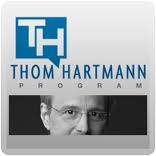 Last night was the third Republican presidential primary debate, and the 10 candidates spent the majority of the time demonizing the federal government and social services.
Last night was the third Republican presidential primary debate, and the 10 candidates spent the majority of the time demonizing the federal government and social services.
Medicare is near the top of services that the Republican candidates want to cut or privatize, with candidates like Ted Cruz also taking aim at doing away with Obamacare completely.
The conservative ideology is clear, their logic is simply that anything that can be done for the public good must also represent an opportunity for capitalists to make a buck .
But strangely enough, those very same conservatives drive on public roads, rely on public police departments, and would call the public fire department if their house ever caught fire.
Not all of those services have always been publicly provided though, in fact, fire departments were privately run in America up until around the time of the Civil War.
Before that time, private citizens paid fire companies for fire insurance, and then hung a medallion for that fire company on the front of their building.
If and when a fire broke out, the different fire brigades would all race to put the fire out, if the building had the medallion of a fire insurance company.
And if it didn't, then the blaze would simply be allowed to burn until it threatened a building that did have a medallion on display.
But around the time of the Civil War, big cities like New York started abolishing their for-profit fire departments and created their own city and state run fire departments.
Which just makes sense, because a fire doesn't just threaten the individual property owner.
Just look at the Great Chicago Fire in 1871 for a prime example of how a fire on a single property can threaten an entire city.
And even though the super-rich in this country are known to hire their own security teams, just think about how dysfunctional our country would be if we privatized all of our police forces.
If someone were to get robbed or if your identity were stolen, you could hire the police to investigate, if you still have money to pay.
Or, if someone was kidnapped, their family could choose between paying the ransom or paying the cops to try to bring them back home safe and sound.
Unlike fire departments, police forces have always been public in this country, because keeping the public safe and making sure that citizens obey the laws of the land is a necessary public good.
And the whole point of government is to provide necessary public services that promote the "general welfare," as they refer to it repeatedly in the Constitution.
So if we care so much about our buildings, why don't we protect our bodies the same way.
When a person is sick, their body is literally inflamed as a result of their body's immune response.
And depending on why their sick, that inflammation can spread quickly across a community.
Take the example of Typhoid Mary, who infected 51 people, three of whom died, over the course of her career as a cook.
The outbreak was so bad and so persistent that she was forcibly quarantined several times in the early 20th century.
That was while the study of how diseases spread was still nascent, but it served as an early American example of why health care is fundamentally a public concern.
And then there was the Ebola outbreak last year in Texas.
Texas refused Medicaid expansion under Obamacare and it also doesn't guarantee paid sick leave for workers.
And the early signs for Ebola are similar to that of a common cold, sneezing, coughing, and a scratchy throat.
Those factors made the potential threat of Ebola spreading in Texas much, much greater than in a state where low-income workers can get free healthcare and can take off work when they're sick without losing pay.
What low-wage worker in the fast food industry is going to forfeit an entire day's wages because of the sniffles.
And what person wants to spend an entire day in an emergency room because they might have the sniffles, or they might have Ebola.
No one.
But those actions would be in the best interest of the society as a whole.
Because on the off chance that the worker doesn't just have the sniffles, and does actually have Ebola, everyone in that community would want the worker to take time off work and seek medical attention.
As Paul Krugman points out, health insurance shouldn't be bought and sold in private exchanges like bread or TVs.
It should be treated like the police department and the fire department as part of a collective responsibility and a collective good.
It's not something anybody wants to have to use, but it should be available to everyone just in case.
Because it's in the public interest that fires are put out, that robbers are arrested, and that sick people get treatment.
It's time to shut down all this insane Republican talk about how to restrict access to Medicare or how Medicare can be transformed into a profit center for some billionaire.
Instead, we should extend Medicare coverage to everyone, and start treating health care as a right and a public good, and not as a privilege for those few who can afford it.
Isn't Your Body More Important Than Your Home?
By Thom Hartmann A...



